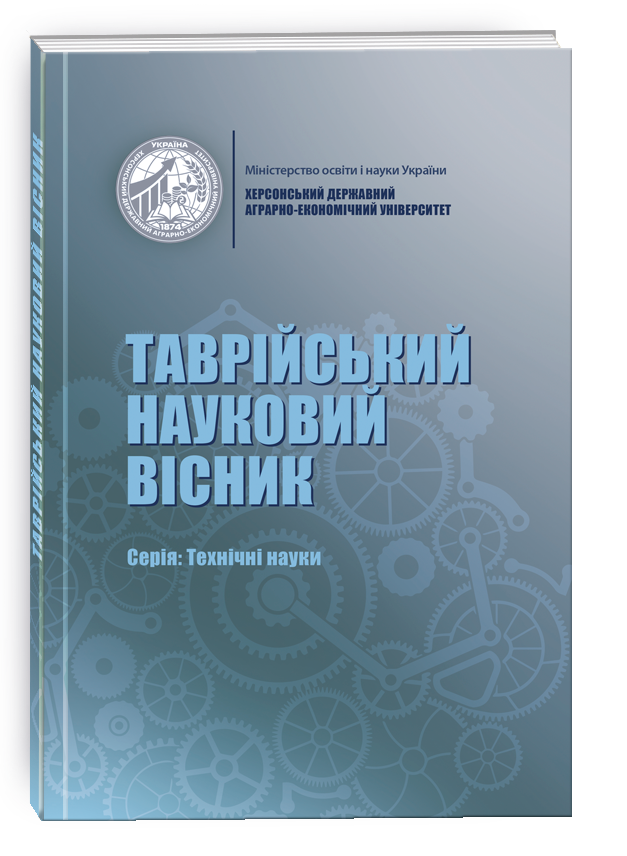SANITARY AND HYGIENIC REQUIREMENTS FOR THE PRODUCTION OF SPECIAL-PURPOSE PRODUCTS
DOI:
https://doi.org/10.32782/tnv-tech.2025.1.31Keywords:
celiac disease, sanitary and hygienic requirements, standards, certification, production, gluten-free raw materials, special-purpose products, production, gluten-free raw materials, functional productsAbstract
Setting objectives. The article discusses the sanitary and hygienic requirements for the production of gluten-free food products for specialized purposes. Gluten-free products are consumed not only by people with celiac disease – a genetic disease in which the body cannot properly digest and process gluten, but also by consumers who abstain from gluten due to diet or other health benefits. The production of special food products requires special attention to compliance with sanitary and hygienic requirements. Since food companies use the same production lines for different types of raw materials, even completely gluten-free recipes may contain residues of ingredients from previous batches containing gluten. Therefore, cross- contamination is a major problem in the production of gluten-free food products. Research results. For gluten-free products, the international standard Codex Alimentarius is used, the upper limit of gluten content in which should not exceed 20 mg/kg. In the European Union, EU Regulation 828/2014 is in force, which sets out labelling requirements for products containing less than 20 mg/kg of gluten. Hygiene requirements for gluten-free products can also be implemented using international ISO standards: ISO 17025 – sets out requirements for the competence of laboratories for testing products for the presence of gluten. ISO 22000 is a food safety management system standard that covers all aspects of product safety, including gluten-free products. Gluten-free products can also be certified by the Gluten-Free Certification Organization (GFCO), one of the most recognized gluten-free certification bodies, which issues certificates for products with a gluten content of less than 10 mg/kg. GFCO checks not only whether a product contains gluten, but also all stages of production, including raw material suppliers, processing, packaging and storage.Conclusions. Thus, it can be concluded that certification of special purpose products according to standards helps to protect the health of consumers, since small amounts of gluten can cause serious reactions in people with celiac disease or gluten sensitivity. Certification allows to ensure that cross-contamination risks do not arise. Compliance with the standard helps to minimize the risks of cross-contamination during the production of gluten-free special purpose products through regular quality control, setting clear limits, which allows manufacturers to control the level of gluten in the final products and avoid errors during the production process.
References
Statistics and facts on the gluten-free foods market in the U.S. 2016. Retrieved from https://www.statista.com/topics/2067/gluten-free-foods-market [in England].
Горач О.О. Проблеми та перспективи розвитку виробництва безглютенових продуктів харчування в Україні / Таврійський науковий вісник. Серія: Технічні науки / Херсонський державний аграрно-економічний університет. Херсон: Видавничий дім «Гельветика», 2022. Вип. 3. С. 128-132.
Association of European Coeliac Societies, AOECS [Електронний ресурс]. Режим доступу: http://aoecs.org/research.
Ринок безглютенових продуктів: великий потенціал поки ще сплячої потреби: веб-сайт. URL: https://agravery.com/uk/posts/show/rinok-bezglutenovih- produktiv-velikij-potencial-poki-se-splacoi-potrebi
Горач О.О. Кіпіоро І.М., Гусар А.О. Використання альтернативних видів сировини з метою розробки нових безглютенових рецептур / Таврійський науковий вісник. Серія: Технічні науки / Херсонський державний аграрно-економічний університет. Херсон, 2022. Вип. 5. С. 38-44.
Gorach O. Conceptual basis of the formulation of gluten-free products based on the use of domestic plant raw materials / Monografia. Moderní aspekty vědy: XXV. Díl mezinárodní kolektivní monografie / Mezinárodní Ekonomický Institut s.r.o. Česká republika: Mezinárodní Ekonomický Institut s.r.o., 2022. P. 373-388.
Горач О.О. Обґрунтування інноваційних технологій функціональних рецептур / Таврійський науковий вісник. Серія: Технічні науки / Херсонський державний аграрно-економічний університет. Херсон: Видавничий дім «Гельветика», 2022. Вип. 6. С. 52-58.
Горач О.О., Дзюндзя О.В., Олейникова С.О. Технологічне обладнання для виробництва борошна функціонального призначення та необхідність його проектування / Таврійський науковий вісник. Серія: Технічні науки / Херсонський державний аграрно-економічний університет. Херсон: Видавничий дім «Гельветика», 2023. Вип. 2. С. 37-46. http://dspace.ksaeu.kherson.ua/handle/123456789/9027
Gorach O., Dzyundzya O., Rezvykh N. Innovative Technology for the production of gluten-free food products of a new generation / Current Nutrition & Food Science. 2024. № 20 (6). Р. 734-744. http://dspace.ksaeu.kherson.ua/handle/123456789/9377
Михалик К.В., Гусар А.О., Горач О.О. Аналіз виробництва безглютенової продукції функціонального призначення на основі використання вітчизняної сировини / Таврійський науковий вісник, 2021. № 6. С. 94-100. http://dspace.ksau. kherson.ua/handle/123456789/7867







